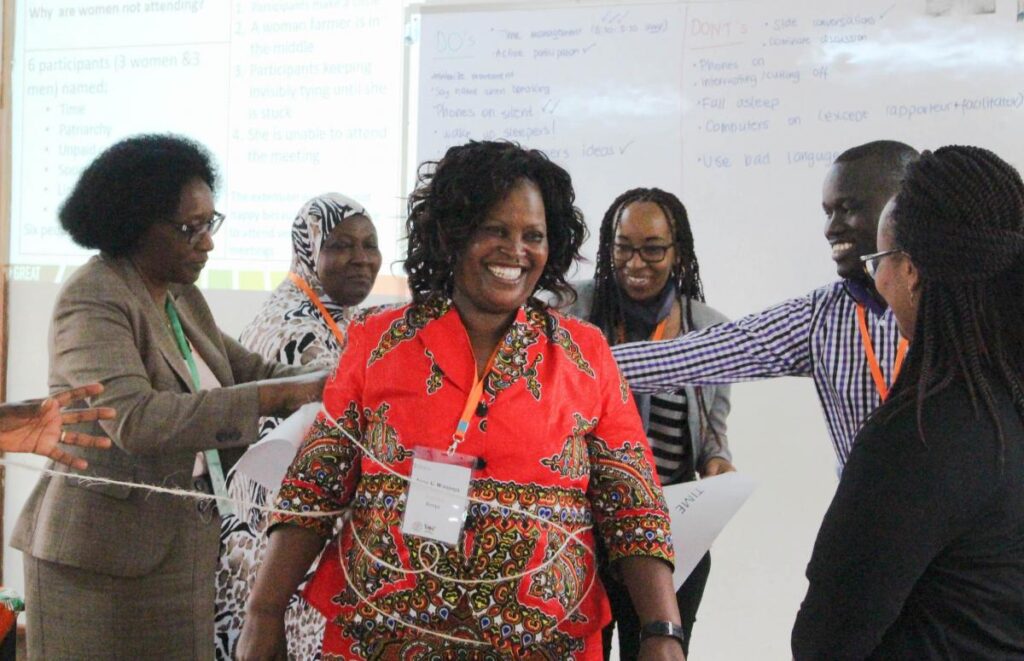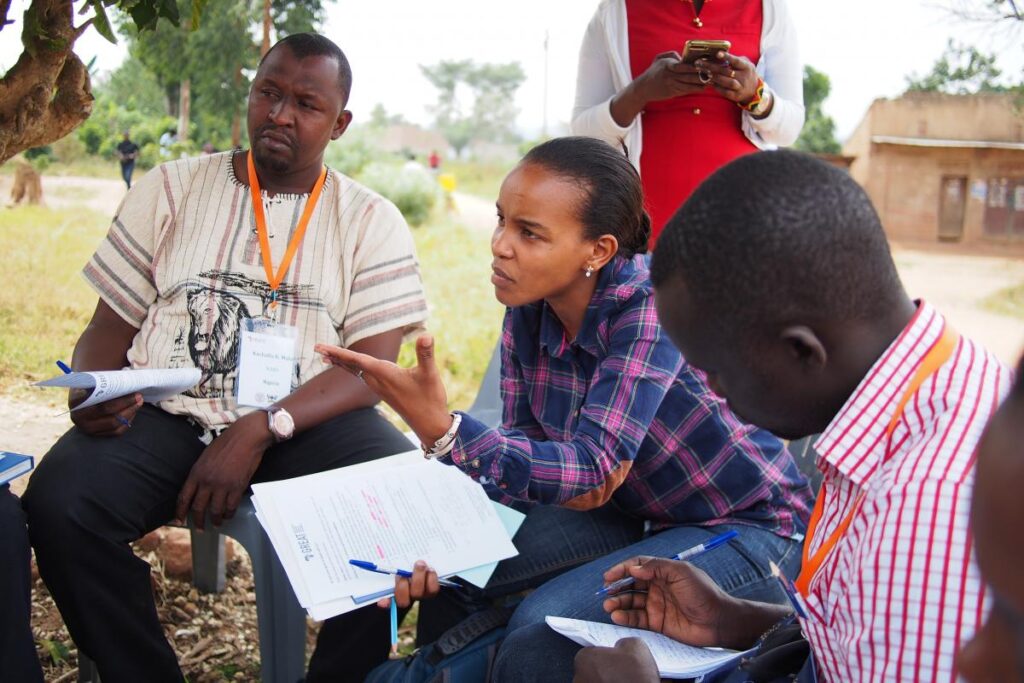By: Kerry Mullins, GREAT Intern, and Devon Jenkins, GREAT Project Manager
As we wrapped up Week 1 of the Gender-Responsive Cereal Grains Breeding Course in Kampala, we caught up with three GREAT participants to see what inspired them to join GREAT, and get their impressions on the course so far. We’ll feature additional voices in the months to come.
Anne Wanjogu Gichangi – Kenya Agricultural and Livestock Research Organization (KALRO), Food Crops Research Centre, Njoro
Why did you enroll in this course?
The training’s theme, gender-responsive cereal grains breeding, was especially relevant to my professional expertise, and therefore I highly appreciated the opportunity that I was given to attend this course. In addition, the opportunity to network and share experiences with scientist across Africa. I perceive this also as an occasion to familiarize with good practices as a channel for my personal development. The training theme is also of a special relevance to my professional goals and career objectives.
What are your overall impressions of the course so far? Is the material interesting/useful to you? Are the sessions engaging?
My overall impression of the course is that the course is very interactive; it is practical oriented and very informing. The materials used in the training are quite interesting and very useful for future references. They will also be useful to me because I will use the materials to inform other scientists about what I will have learned from GREAT.

Anne Gichangi (center) participates in an exercise during Week 1 of the GREAT Gender-Responsive
Cereal Grains Breeding Course, August 2017.
What do you hope to gain by taking this course?
I hope to gain a more thorough understanding of gender applications to be able to do gender-responsive research. I will also understand more how and when to use qualitative and quantitative data collection methods and how to code the qualitative data.
How did you find out about the course?
My colleagues, Godwin and Bernice who incidentally learnt about the course from other sources. Godwin and Bernice are my project team members who are also participating in the present training.
Gaudiose Mujawamariya – AfricaRice, Dar Es Salaam
Why did you enroll in this course?
While I have previously attended a few gender courses, I was still feeling in my comfort zone as an economist. I would do some research work there and there that investigates some gender issues, but I felt that I needed some deeper understanding of how to integrate gender not only in my own research, but also in the strategies of my institution as a gender focal person. The course is highly opportune and pertinent.
What are your overall impressions of the course so far? Is the material interesting/useful to you? Are the sessions engaging?
So far in Week 1 of the course, my overall impression is how useful the course is to me and my colleagues. Starting from scratch into the definitions of gender concepts was important to clear some misunderstanding and biases associated with gender research; the integration of gender into each stage of the project cycle, the clear guidelines of implementing qualitative research and the related tools were all interesting. While I conducted KIIs and FGDs in the past, I believe that learning how to do these properly will greatly improve the quality of my work, how I present it and make it relevant to the different stakeholders.
What do you hope to gain by taking this course?
Improved knowledge and skills, more pride and confidence in doing gender research, and ability to clearly bring out, communicate and address the issues faced by women and men in agriculture in general, and in rice farming and its broader value chain in particular.
How did you find out about the course?
Well, the information about the course was passed on by Africa Rice Center (AfricaRice) top management, which shows the interest of my institution in making gender work.

Bernice Waweru (center) field tests qualitative research methods during the course.
Bernice Waweru – Kenya Agricultural and Livestock Research Organization (KALRO), Food Crops Research Centre, Njoro
Why did you enroll for this course?
I had previously not received any formal training on aspects of gender before this course. I had no clarity what gender meant and its significance in research. I was eager to gain understanding on gender and gender related issues in research and development in regards to agriculture, particularly breeding.
What are your overall impressions of the course so far?
The course is great and so much fun! The trainers are well versed with gender issues and are very articulate in communicating them. The learning experience is quite intense which makes the course worthwhile.
Is the material interesting/useful to you? Are the sessions engaging?
The course content is quite relevant to me as upcoming breeder. Attending this course at a young stage in my career is quite an honor for me as it ensures that henceforth I will endeavor to undertake research that is practical and impactful to both genders for more effectiveness and meaning. The sessions are very engaging and very interactive. The trainers are very keen to ensure all the participants are fully involved. The practical sessions give life to the theories and ensure the lessons are well understood and conceptualized.
What do you hope to gain by taking this course?
Through this course I hope to learn what it means to undertake gender-inclusive research. I look forward to acquiring key lessons in how to practically undertake research that takes into account gender-related constraints of the product chain and end consumers of my work so as to be more influential at the community and national level to ensure that we continue towards the goal of alleviating food insecurity.
How did you find about out about the course?
The course was brought to my attention by one of my mentors, Dr. Sridhar Bhavani. He mentioned that there was a course on gender coming up and I was excited about it and went ahead to learn more about it from the course website.





